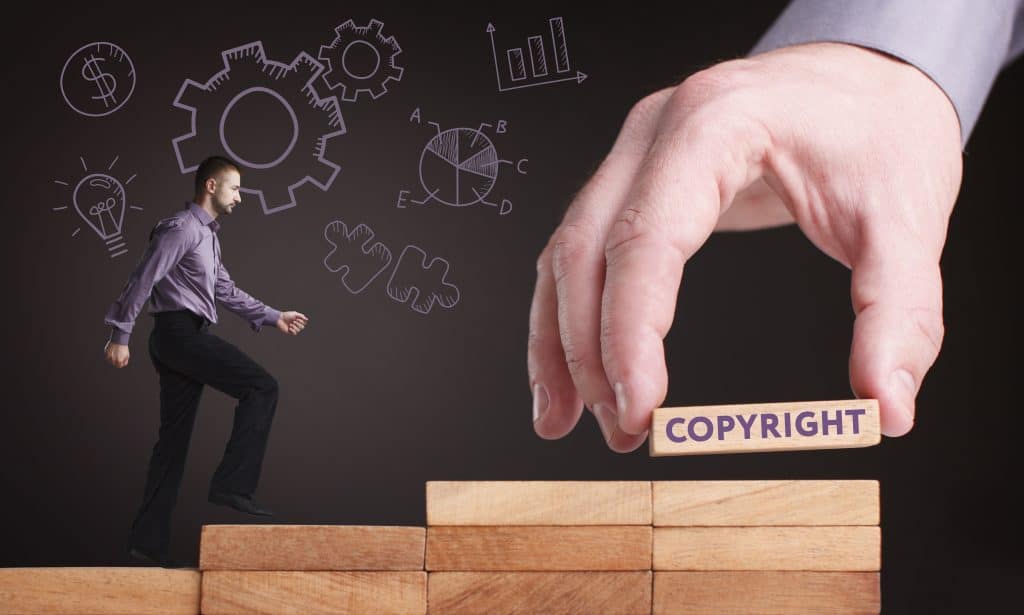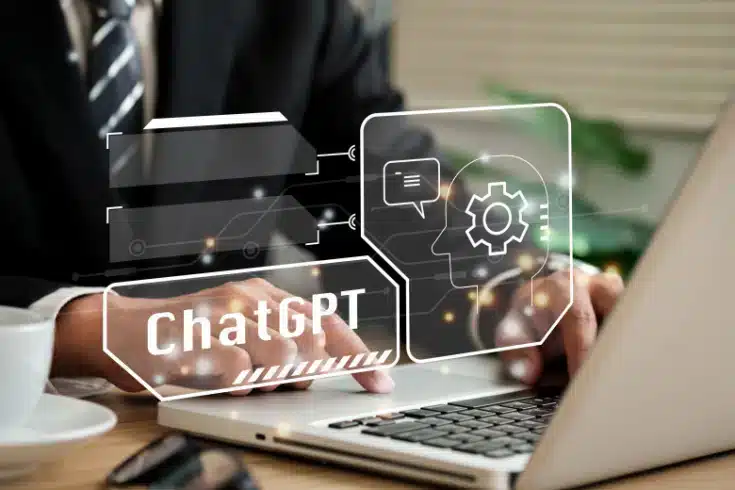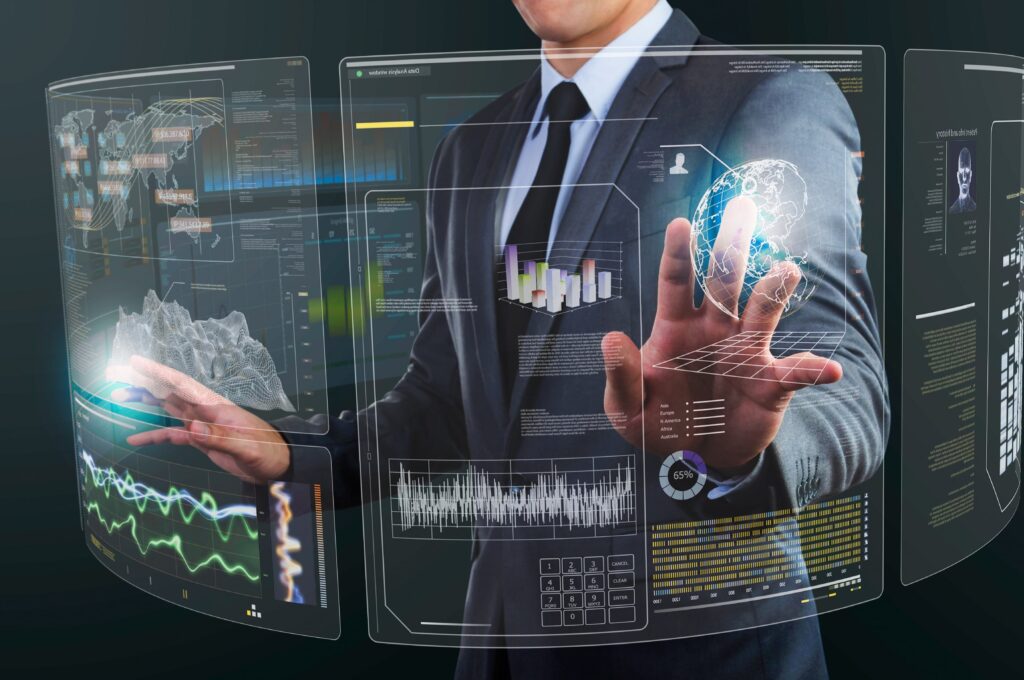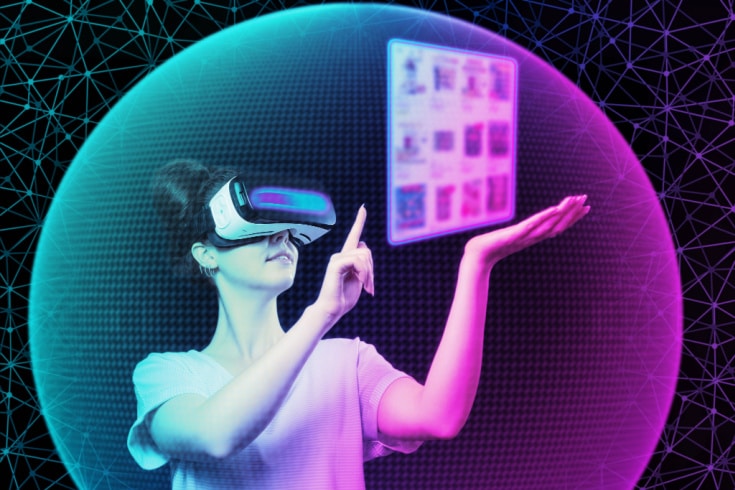Guidelines for AI Use Contracts in Japan: Ensuring Smooth Contractual Relations
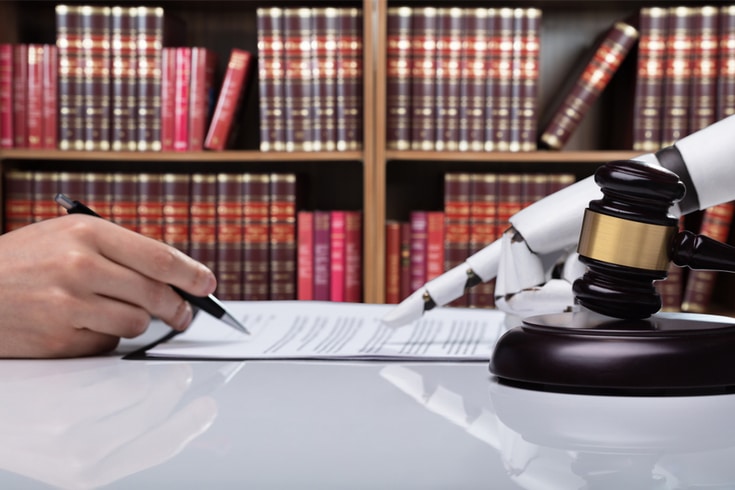
As the AI field advances rapidly, Japanese laws have struggled to keep pace with the evolving technology. Insufficient legal development poses potential challenges for the expanding AI business. To address this issue, Japan’s Ministry of Economy, Trade and Industry (METI) has introduced the “Contract Guidelines for AI and Data Use” to assist parties involved in AI business transactions.
This article provides an overview of the guidelines, offering key insights for contracting parties in the AI industry. By understanding these guidelines, you can effectively craft usage agreements that promote smooth and trouble-free contractual relations, particularly during the final stages of AI development.
An Introduction to the “Contract Guidelines for AI and Data Use”
The “Contract Guidelines for AI and Data Use” have been issued by Japan’s Ministry of Economy, Trade and Industry (METI) to provide valuable guidance for the formulation of contracts within the domestic AI industry and research sector. These guidelines are designed to assist businesses and organizations in developing sound contractual practices related to AI. In conjunction with the guidelines, METI and the Japanese Patent Office have also released model contracts for various stages of AI development, offering practical templates for implementation.
The Genesis of the Guidelines: Addressing Challenges in AI Contract Development
As the rapid evolution of AI technology continues, the need for practical legal frameworks has become increasingly apparent. Unfortunately, common contracts used in AI development and utilization often face challenges stemming from the following factors:
- Gap in perception and understanding between AI engineers and service users.
- Insufficient knowledge of contract practices in the field.
To tackle these issues, Japan’s Ministry of Economy, Trade and Industry (METI) took the initiative in June 2018 to establish the “Contract Guidelines for the Use of AI and Data.” These guidelines were designed to provide clear direction for contractual agreements related to AI development. Following the formation of a dedicated study group, an updated version titled “Contract Guidelines for the Use of AI and Data, Version 1.1” was released in December 2018. The guidelines aim to facilitate effective contract drafting and ensure legal compliance for businesses engaged in AI utilization.
Unique Characteristics of AI Technology Development
The development of AI systems presents distinctive characteristics that differentiate it from traditional software development processes. Some key aspects include:
- Uncertainty of Trained Model: At the time of contract, the specific content and performance of the trained AI model may be unclear, as it evolves through learning and adaptation.
- Impact of Training Dataset Quality: The quality of the training dataset directly affects the content and performance of the trained model. High-quality data is essential for achieving accurate and reliable AI outcomes.
- Significance of Know-how: AI development requires specialized knowledge and expertise, often involving proprietary algorithms, methodologies, and techniques. Safeguarding and leveraging this know-how becomes crucial.
- Demand for Artifact Reuse: Generated artifacts, such as trained models, may hold value beyond their initial purpose. There may be opportunities to repurpose and reuse them for various applications or further development.
- Data Quality Dependency: The accuracy and effectiveness of AI training heavily rely on the quality and relevance of the data provided by the user or the business firm.
Furthermore, AI system development is an ongoing and iterative process. It necessitates continuous learning and improvement, rather than a one-time implementation. The Ministry of Economy, Trade and Industry (METI) guidelines emphasize that the traditional waterfall approach, involving pre-defining requirements and signing a contract, may not be suitable for AI development.
To address these considerations, an “exploratory phased development” approach is recommended. This approach entails signing specific contracts for each development phase, ensuring proper legal frameworks are established. For instance, in the assessment phase, a non-disclosure agreement (NDA) may be necessary, while an Implementation Verification Agreement could be suitable for the Proof of Concept (PoC) phase. As the development progresses, a software development agreement would be appropriate, and a User Agreement may be required for additional learning phases and ongoing usage.
Key Considerations for Drafting an AI Usage Agreement
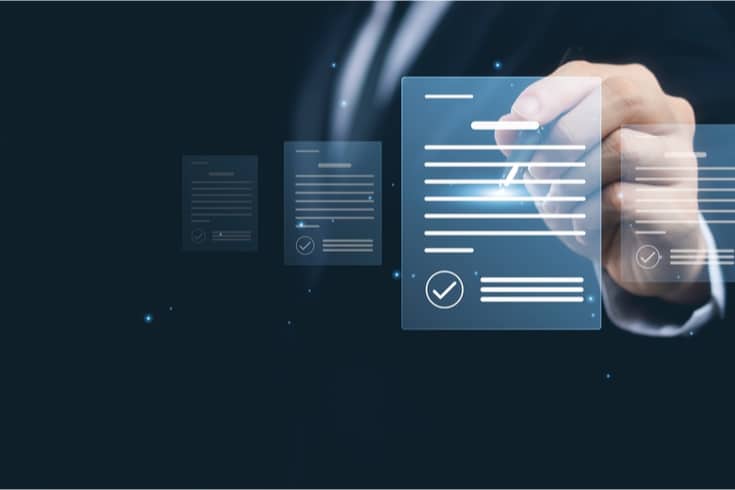
When drafting a “User Agreement” during the final stage of AI development, careful consideration and negotiation of clauses are crucial to maximize the mutual benefits between the user and the vendor, taking into account the unique characteristics of the AI system. To ensure a well-rounded agreement, it is essential to keep the following points in mind during the negotiation process.
Flexibly Defining the Scope of Data Use Provided by the Business Company
In the field of AI development, conflicts may arise between users (business companies) and vendors (start-ups) regarding the extent to which training datasets and learned models can be utilized.
On one hand, users may seek exclusive rights to the data provided by the company and its resulting deliverables. On the other hand, vendors may desire to leverage that data to enhance their AI systems and generate additional value. Therefore, it is essential to establish a flexible framework for the use and management of data, aiming to maximize benefits for both parties while considering the user’s valuable contribution.
Ensuring Service Output Accuracy in AI Contracts
The development of AI systems presents unique challenges, particularly in guaranteeing output accuracy through learning. Unlike traditional software, it is difficult for vendors to provide upfront assurances of ideal service outcomes since the results are dependent on real-world testing.
To address this, effective communication and understanding between both parties are crucial before entering into an AI contract. It is essential to clearly define the scope of liability in cases where the use of AI services may infringe upon the rights of third parties. By proactively addressing these concerns, potential issues can be mitigated, ensuring a more reliable and transparent contractual arrangement.
Creating Win-Win Service Provisions in AI Contracts
When establishing the terms and conditions for the use of AI systems, it is crucial for both parties to have a comprehensive understanding of each other’s business models. This understanding enables the creation of provisions that benefit both parties.
Users can enhance business efficiency and maximize profits by utilizing AI services, while vendors can leverage the data provided by users to improve the accuracy of their AI systems.
To foster accuracy improvement, it is advantageous to have data and trained models shared on a non-exclusive basis. This can be achieved by including clauses in the contract that are favorable to the user. For instance, a Most Favored Nation (MFN) clause can be applied to service usage fees. By adopting such provisions, the AI contract can be designed to establish a win-win situation for both parties involved.
Key Considerations for Drafting AI Usage Contracts
Following the guidelines established by Japan’s Ministry of Economy, Trade and Industry (METI), in collaboration with the Japan Patent Office (JPO), a “Model Agreement ver. 1.0” was released in 2021, followed by the publication of “Model Agreement ver. 2.0” in March 2023.
In this article, we will discuss the potential challenges that may arise during contract negotiations, focusing on the “User Agreement (AI version)” released in March 2023. By understanding these key points, contractors can address potential issues and ensure a smooth contractual process.
Non-Exclusive Provision of Services (Article 3)
When a user business firm provides input data to a vendor for AI development, the data may contain valuable business secrets and know-how. The user may have a preference for exclusive use of the learned models generated from their data.
However, for the vendor, there is potential for utilizing the learned models to further train and develop more advanced models. Considering that the learned models are derived from the user’s data, their contribution holds significant value. Therefore, it is understandable for users to seek exclusivity.
On the other hand, users also benefit from the potential for business expansion through the use of better-performing learned models.
To address these considerations, the Model Agreement provided by the Japan Patent Office (JPO) suggests a non-exclusive provision of learned models. Additionally, it emphasizes the importance of providing preferential treatment and favorable conditions based on the user’s level of contribution.
Article 3 (Non-exclusive)
1 The LICENSEE is authorized to provide services using the Learned Models and Additional Learned Models (with or without providing copies of the models to third parties), except for JQA.
2 JQA is permitted to use the Data Analysis Services for its own purposes and for third parties, subject to the terms and conditions specified in this Agreement.
Content of Additional Learning Services (Article 4)
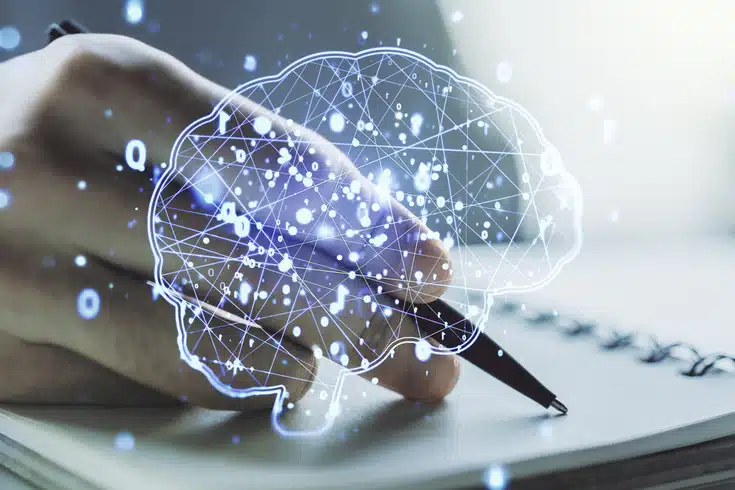
In addition to the non-exclusive use of data and learned models, it is crucial to address the specifics of additional learning in the utilization agreement. The following aspects should be considered when drafting the agreement:
Scope of data for additional learning: Clearly define the extent of data that will be used for further training and refinement of the AI system.
Handling of datasets for additional learning: Establish provisions regarding the handling and confidentiality of datasets provided for the purpose of additional learning.
Attribution of rights and terms of use for learned models: Specify the ownership and rights associated with the learned models generated through additional learning, and outline the terms of use for these models.
The process of AI system development extends beyond the initial delivery of trained models and involves ongoing additional learning to enhance the system’s accuracy.
Conducting additional learning using the learned models derived from the user’s data contributes to improving the accuracy of the AI system’s outputs, benefiting both parties involved in the contract.
Article 4 (Contents of Additional Learning Service)
The First Party shall provide additional learning services to the Second Party with the following contents.
1 Learned models subject to additional learning
The Learned Models and Additional Learned Models
2 Data to be used for additional learning
Target data and data provided to LICENSEE by third parties other than Paygate
3 Service Term
The term of service shall be the same as the term of validity of this Agreement.
Omitted.
7 Ownership of Copyrights of Additional Learning Models, etc.
8 Attribution of Patent Rights of Additional Learned Models, etc.
9 Terms of Use of Additional Learned Models
The terms and conditions of use of the Additional Learned Models shall be the same as the terms and conditions of use of the Learned Models set forth in this Agreement.
Omitted hereafter.
Service Fees (Article 8)
When utilizing user-provided data or trained models for AI development, it is essential to consider the contribution of the users in the contract. One effective approach is to offer most-favored-nation treatment, such as discounted service fees for a specific duration, to users who have contributed their data.
However, it is important to acknowledge that the impact of early user data on improving custom models may diminish as the AI industry rapidly evolves. Consequently, the discount rate should be adjusted accordingly.
Article 8 (Service Charge)
Paygate shall pay to LICENSEE the amount calculated by the following formula as compensation for the services set forth in this Agreement.
Calculation Formula
Unit price per API request: *****Yen (excluding tax, hereinafter referred to as “API unit price”) ×x Number of times used
Omitted
5 Consumption tax on each of the fees set forth in this Article is not included.
6 The annual percentage rate for late payment of the fees stipulated in this Article shall be 14.6%.
Provisions on Non-Warranty and Indemnification for Damages (Articles 12 and 17)
Given the inherent complexities of services utilizing learned models, it is challenging for vendors to provide upfront guarantees regarding the accuracy of their services. As a result, it is crucial for the contracting parties to reach a mutual understanding and agreement that the vendor cannot guarantee the suitability or safety of the services provided by the learned models for the user’s specific purposes.
Furthermore, it is advisable to establish provisions that limit the vendor’s liability for damages or set a predetermined cap on the potential amount of damages in case the user or a third party incurs losses due to the utilization of the AI services.
Article 12 (Non-warranty and Disclaimer)
1 The LICENSEE does not warrant to the SUPPLIER the fitness for a particular purpose, availability, completeness, safety, or legal compliance of the Service.
2 The LICENSEE does not warrant to the SUPPLIER that use of the Service will not infringe on any intellectual property rights, including patents, utility model rights, design rights, or copyrights of any third party.
Article 17 (Compensation for Damages)
Second Party may demand compensation for damages from First Party if Second Party suffers damages due to reasons attributable to First Party as a result of use of the Service. However, the scope of the First Party’s liability to the Second Party for damages under this Agreement shall be limited to direct and ordinary damages actually incurred by the Second Party, regardless of default liability, infringement of intellectual property rights, unjust enrichment, tort liability, or any other legal cause of claim, and the First Party shall not be liable for special damages, including lost profits, regardless of the First Party’s foresight or foreseeability. The LICENSEE shall not be liable for any special damages, including lost profits, regardless of the foreseeability or unforeseeability of the LICENSEE.
Summary: Expertise Required in Drafting AI Use Agreements
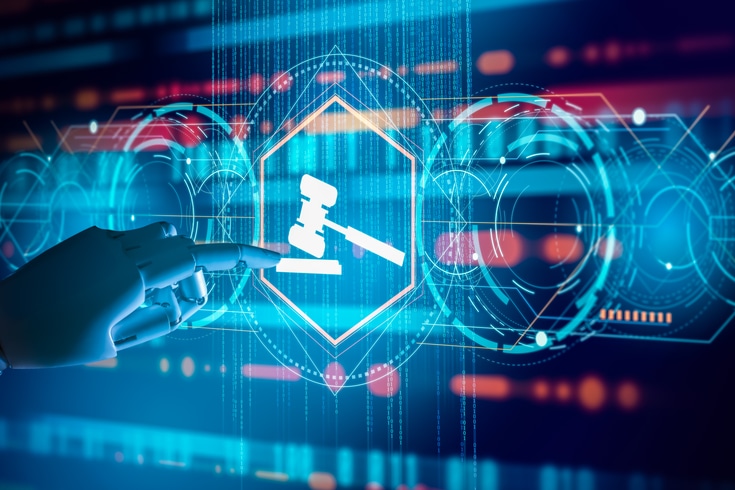
The development of AI systems brings unique challenges in guaranteeing accuracy and reusing learned models, necessitating the creation of specific contracts for each stage of development. In response to this, the Ministry of Economy, Trade and Industry (METI) has formulated the “Contract Guidelines for AI Data Use” and collaborated with the Japan Patent Office to publish model contracts for each development phase.
When finalizing a usage agreement, it is crucial to reach a consensus on key points and establish fair terms and conditions that cater to the interests of both parties involved. These points include non-exclusivity of learned models, the scope of additional learning, and the vendor’s disclaimer of output accuracy guarantees.
Drafting an AI system development contract differs from traditional agreements, requiring a comprehensive understanding of AI technology and legal expertise. Seeking advice from specialists in the field is highly recommended to ensure an effective and tailored contract.
Legal Support for AI Businesses
As the AI industry continues to evolve, it brings forth numerous legal challenges and risks that require specialized expertise. At Monolith Law Office, we understand the unique legal complexities faced by AI businesses and offer comprehensive legal support to address these issues.
Our dedicated team of lawyers, engineers, and other professionals possesses in-depth knowledge and experience in AI-related law. We are well-versed in providing tailored legal solutions to ChatGPT and other AI businesses, ensuring compliance, mitigating risks, and protecting your interests.
Our services include:
- Contract Drafting: We assist in the drafting and negotiation of contracts specifically tailored to the unique requirements of AI businesses, including AI usage agreements, data licensing agreements, and intellectual property-related contracts.
- Business Model Review: We analyze the legality and compliance of your AI business model, identifying potential legal risks and providing strategic advice to ensure your operations align with the applicable legal framework.
- Intellectual Property Protection: We offer expert guidance on intellectual property matters, including patent, copyright, and trademark protection, to safeguard your AI innovations and ensure your exclusive rights are preserved.
- Privacy and Data Protection: We assist in implementing robust privacy measures, ensuring compliance with relevant data protection laws and regulations, and protecting the privacy rights of individuals whose data is used in AI processes.
At Monolith Law Office, we are committed to providing reliable legal support to navigate the complex landscape of AI-related legal challenges. Contact us today to learn more about our services and how we can assist your AI business in achieving its goals while ensuring legal compliance and risk management.
Category: IT



